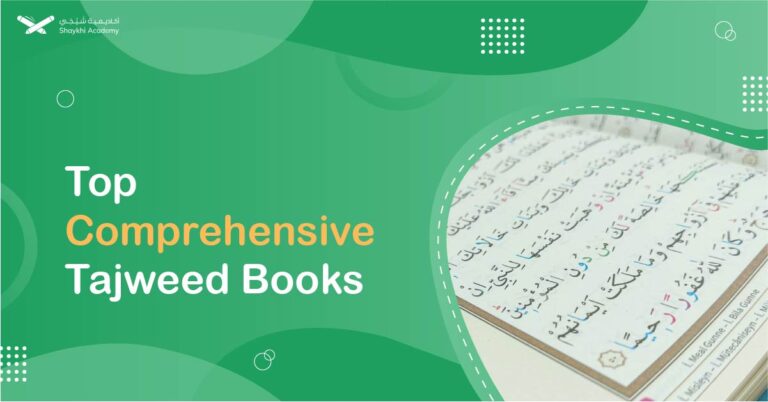Is Arabic Hard to Learn? Learning Arabic could be hard at the beginning of learning journey, due to the difference in the nature and structure of the Arabic language from other languages, especially European ones, which leads some speakers of these languages to say that the Arabic is hard to learn, but with some steps that we will present during this article, it will be easy, God willing.

Is it hard to learn Arabic?
According to many studies in non-Arabic-speaking countries, learning the Arabic language is a difficult task for the vast majority. An English speaker, for example, needs on average approximately eighty-eight weeks to learn the Arabic language initially!
So we can say that Arabic is one of the hardest languages to learn because of a number of reasons related to the formation of the language itself, its letters, method of pronunciation, and even grammatical rules, but this is normal that there is of course a difference between any language and other languages
Why is Arabic Hard To Learn?
The Arabic language is usually considered one of the most difficult languages to learn after the Japanese, and this is due to several reasons, such as:
1. Different sounds
Arabic literally contains sounds that are completely different from European languages.
A good example of this is the back of the throat “3een” ع which is one of the most difficult letters, especially if English is your mother tongue
This is the most prominent reason because pronunciation in learning new languages is important.
2. Arabic writing system
There is a remarkable complexity to the Arabic writing system and Arabic letters in general, as the Arabic alphabet consists of 28 letters, and most letters change their shape slightly depending on where they are in the word and their position in the sentence.
Also, the difference in writing in Arabic from right to left may be strange to some.
3. Grammar Can Be Tricky
Stacks of Arabic grammar books can frustrate you because the grammatical rules in the Arabic language are completely different from foreign languages, first in terms of sentence order and verb conjugation, and second in terms of relying on the dual and plural in a completely different way.
For example, in the English language you can guess the plural of a word simply by adding the letter “s” to it, but in Arabic this is impossible, as the plural of the word is another completely different word that you must memorize, and you cannot guess here!
4. Diversity of Arabic dialects
You can be completely fluent in Arabic and still have difficulty conversing with another Arabic speaker fluently.
This is because the Arabic language is a large umbrella that contains under it many dialects that are very close and different at the same time. Arabic speakers of the Egyptian dialect may not fully understand speakers of the Yemeni Arabic dialect, and those who speak the Moroccan dialect may not fully understand them.
5. Lack of resources and teachers
One of the difficulties of learning Arabic that I noticed is the difficulty of obtaining an Arabic teacher or one who is proficient in the Arabic language in most foreign countries, but turning to online lessons is the best alternative to solve this problem.
6. Arabic is (probably) unrelated to the languages you are familiar with
The extent to which the language you are starting to learn is related to your original language makes it easy to learn. The evidence for this is that an English speaker can master the Spanish language within a few months and speak it fluently, while he cannot do so with the Arabic language, due to the extent of similarity and interconnectedness between English and Spanish, as they are of the same linguistic origin.
7. Difference in the form of texts
The shape of sentences, words, and Arabic calligraphy itself may shock you because it is completely different from other languages and from your mother tongue. Arabic is written and read only in cursive script.
Learning not only to write but also to read using this long, elegant font can be confusing for those who do not use similar cursive letters in their daily lives.
8. Confusion of Arabic being gendered language
As is known, many languages of the world do not have the concept of grammatical gender. Others, like German for example, have three: masculine, feminine, and neuter!
The Arabic language achieves a balance here between only two genders, the masculine and the feminine. In the Arabic language, not only does each noun have its own gender, but the plural endings, for example, are also completely different depending on whether it is masculine or feminine! What’s more, the same applies to the endings of verbs and adjectives too!
This is a difficulty for beginners and adds a lot of complexity to an already dense language.
9. The pronunciation system is difficult
This is a common problem for most Arabic language learners and we mentioned it above, as the pronunciation in the Arabic language is completely different from the pronunciation of letters in other languages.
Why does Arabic sound harsh?
No, Arabic does not sound harsh, non-Arabs are not used to hear the Arabic sound. So, you can say Arabic is a non usual sound not a harsh sound.
The Arabic language may seem harsh to the ears of those who have never been exposed to the Arabic language with its speakers in real life and whose knowledge of its sound is limited to political speeches or news networks, but in reality, these speeches come out to people in a form and manner that completely different of the Arabic language sound which used in daily life of its speakers.
What is the hardest part about Arabic?
The hardest part about Arabic language is the pronunciation which is different from other languages, especially English.
The Arabic language contains sounds and letters that are difficult for non-Arabic speakers to pronounce, such as the letter “ح” , and the letter “ع”. These letters have no equivalent in foreign languages, and their pronunciation constitutes extreme difficulty for non-Arabic speakers.
Also, some recent researches consider the vocabulary as the most difficult part, as there is almost no vocabulary in common with the Latin or Indo-European languages, and you must learn every word as a new word. There is no specific rule for forming the plural, you need to memorize each word and its plural.
Words in Arabic carry more than one meaning.
Is Arabic grammar hard?
Arabic has a lot of grammatical rules that are completely different from English grammar.
English only has two verb forms according to the subject, while Arabic has different verb forms depending on whether it is a man doing the action, or whether it is a woman.
Thus, there are differences in many rules, for example, the difference in sentence order. In Arabic, we begin with the verb, while in English, we begin with the noun.
Is the Arabic alphabet hard?
Yes, the Arabic letters are somewhat difficult because their shape differs according to their location in the word.
How to make learning the Arabic alphabet Easy?
There are simple steps that you must follow in order so that learning the Arabic alphabets is easy:
1- Save the letters individually
The Arabic language contains 28 letters. You must know each letter and how to pronounce it
2- Learn the shape of each letter at the beginning, middle, and end of the word
The shape of the Arabic letters varies according to their location in the word
3- Learn to pronounce each letter using diacritic movements
That is, you must learn the diacritic movements such as fatha, dhamma, and kasra, when to use each of them, and how to pronounce each letter with these movements.
What dialect should a person study?
This varies depending on what your goal is in learning the Arabic language. If it is learning the Qur’an, for example, or religious matters, it is preferable to learn classical Arabic, but if it is for the purpose of moving to live in one of the Arab countries or working there, it is preferable to learn it in the dialect of the country you are going to.
How to learn Arabic easily?
After we learned together what are the possible difficulties that you may face in your journey of learning the Arabic language, let us now know what the solutions are for each problem…
There are 5 tips to learn Arabic easily:
Join a professional course to learn the Arabic language
The first step to learning Arabic correctly and overcoming the difficulties we mentioned is to choose a teacher and a reliable professional place to provide you with a course and learning program that suits your age and skills and makes the task easier for you.
You can join the Arabic language course from Shaykhi Academy.
Keep a notebook of new words
This helps you memorize the most frequently used words in the language that are expressed on a daily basis. This makes it easier for you to dialogue and speak the language. Every language has certain sentences and words that are used more than others, and these words are important to be memorized.
Use various learning methods
Since learning the Arabic language cannot rely on books and reading in them only, but rather the educational process must vary between study sessions, audio materials, video clips, realistic conversations, publications and books because of the importance of this in conducting conversations and training in the language in all ways.
Use learning Arabic language app
Choose a reliable application that helps you learn, as Arabic language learning applications contain many activities and exercises that develop your attention towards the language and give you the advantage of continuity because they are available with you at any time and in any place.
Practice
This step must be present alongside the previous steps because of its importance in learning the language. Practice is the secret to mastering any language, and it would be better if this practice was with a friend who speaks Arabic as a mother tongue.
Is Learning Arabic Worth it?
If you are feeling frustrated about starting or continuing to learn the Arabic language because you are facing one or all of the difficulties, then let me tell you that this feeling is normal at some point, but do not let it control you because every problem has a solution!
Learning Arabic, like learning any other language, has challenges, but this does not mean that you should abandon your learning journey.
The Arabic language is one of the most languages that worth learning because:
It builds bridges of communication with Arab culture
Arabic is considered the official language, and one of the approved languages, in more than 25 countries, and is spoken by more than 420 million people. It is also considered one of the languages recognized by the United Nations, and it is also one of the six languages on the list of spoken languages in the world, and this indicates It is linked to many cultures, and by learning this language, non-Arabic speakers can learn more about these cultures and discover them.
It paves the way for you to learn other languages
As learning it makes it easier for you later to learn other languages close to it, such as Hebrew, Persian, Urdu, and Turkish, and the reason for this is due to the similarity between Arabic and such languages in grammar, vocabulary, etc., which makes learning them, after learning the Arabic language, It’s easier.
It helps you in your travel to Arabic-speaking countries
One of the components of successful travel is speaking the original language spoken by the residents of the countries and regions to which one is traveling, and teaching the Arabic language to non-native speakers helps facilitate their travel trips to the Arab countries and regions whose residents speak this language.
It helps you study the Holy Quran
Learning the Arabic language for you as a Muslim is of great importance as it helps you memorize the Qur’an in the language in which it was revealed and meditate on its meanings, verses and rulings.
It gives you better career opportunities
There are many fields and sectors of work that require knowledge or mastery of the Arabic language, and learning Arabic for non-native speakers helps increase their chances of obtaining jobs in Arab countries.
Is Arabic a hard subject?
For beginners, yes, the Arabic language may be somewhat hard, but it is not as difficult as some might imagine. It is natural that learning anything new may be complicated at first, but once you obtain a suitable learning place and a professional teacher, the subject will be completely easy.
How Long Does It Take To Learn Arabic?
According to studies, the beginning of mastering the Arabic language can occur after 2,200 hours of study, but this number is varies according to several factors, such as the extent of dedication to learning, previous experience in learning other languages, the teacher through whom you receive it, and also according to the individual abilities of each person.
Read an indepth discussion on How Long Does It Take To Learn Arabic?
What is the most difficult language in the world?
Determining which language is most difficult to learn is subjective and depends largely on the individual’s native language and learning abilities
But according to the Interagency Language Roundtable (ILR) assessments, the most difficult languages to learn are Mandarin, Arabic, Korean, Hungarian, and Japanese.
Mandarin Chinese tops the list as the most difficult language, especially for English speakers, due to its tonal pronunciation, unique idioms, and use of thousands of heraldic characters.
Arabic or English, which is harder?
Comparing Arabic and English seems illogical as the two languages belong to different language families and have distinctive features, such as different writing systems and grammatical structures.
For English speakers, Arabic will be complicated because of its grammar, different texts, and unfamiliar sounds. Arabic speakers will find that learning English is difficult because of its vast vocabulary, irregular spelling, and complex idiomatic expressions. In the end, difficulty learning a language is subjective and varies from person to person.
Start Learning Arabic Easily with Shaykhi With Native Arab Tutors:
As we have emphasized, learning the Arabic language can be very easy provided that you obtain an experienced teacher who is native Arabic speaker, and this is what Shaykhi Academy provides you, it includes a list of Arabic language teachers of Arab origin, which helps you learn the language from its native inhabitants through a number of online Arabic courses with modern curricula and learning tools. The academy also gives you the possibility of taking a trial session for free to make your decision first.
choose one of our arabic courses ( online Quranic arabic course– learn arabic online course– fusha arabic classes) and start your journey to learn Arabic with us now!
Learning the Arabic language is worth the effort, so do not stop and start with us now!




















